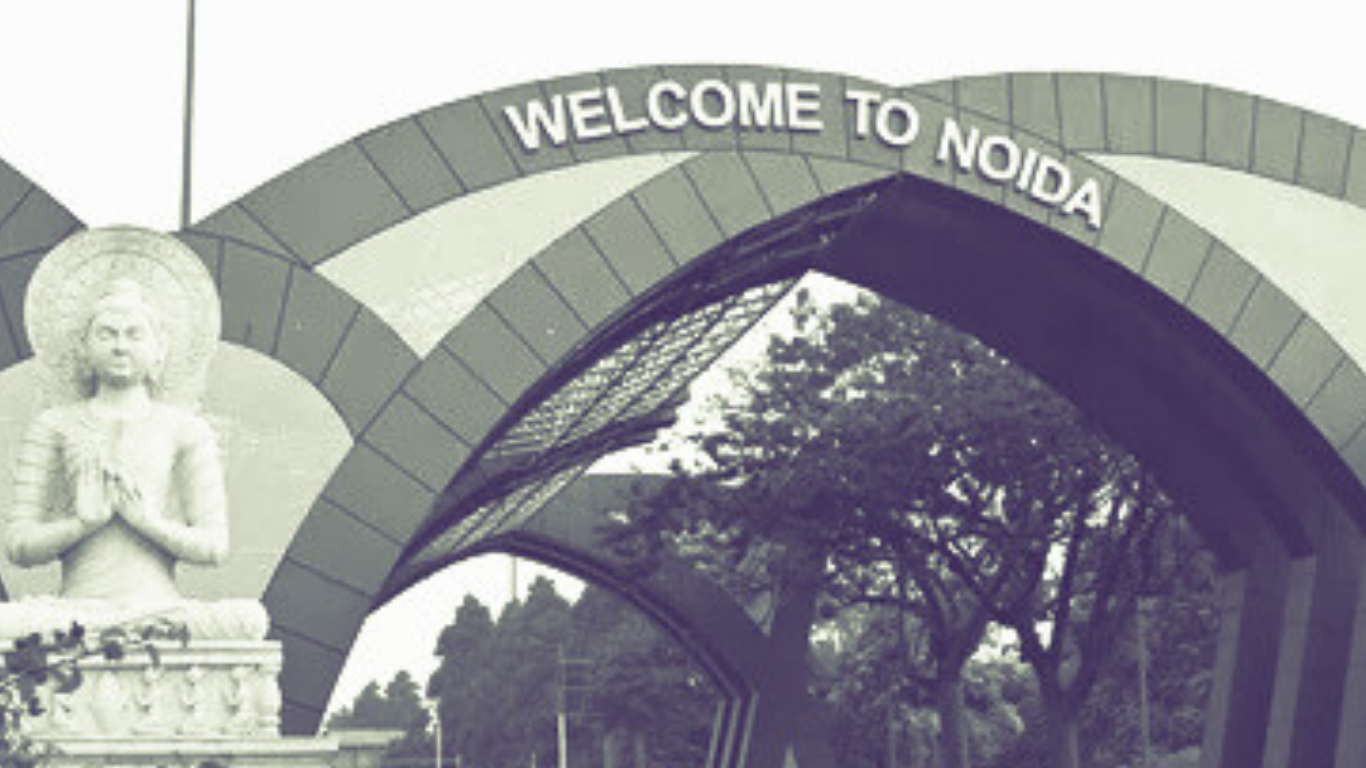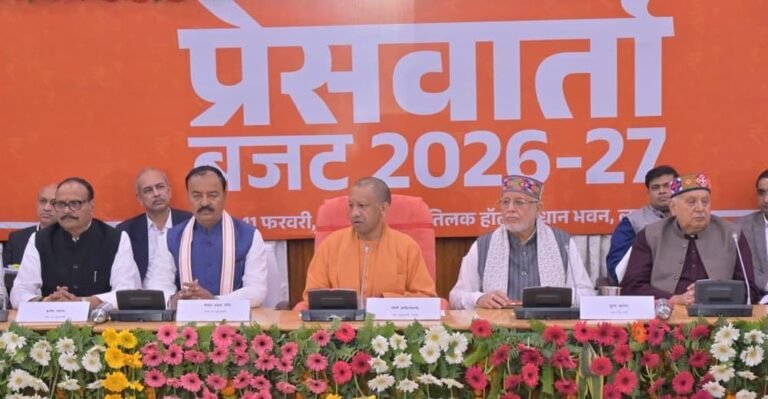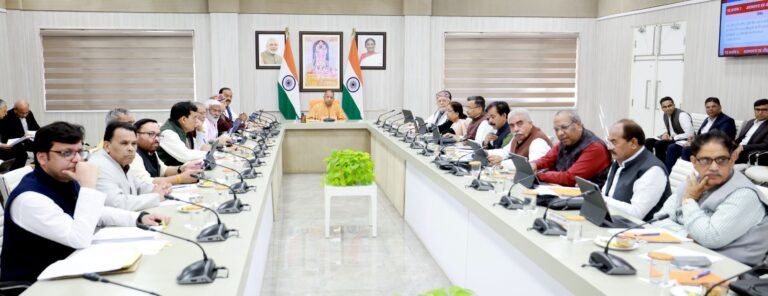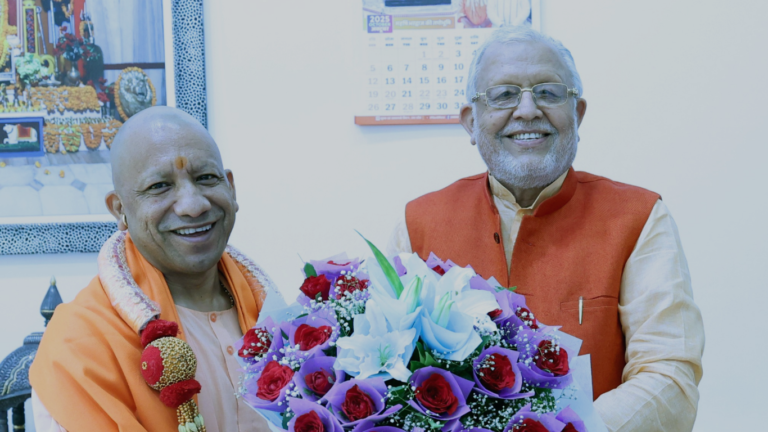
Gautam Budh Nagar, a dynamic district in Uttar Pradesh, is a key part of the Delhi National Capital Region (NCR). Formed in 1997 by combining parts of Ghaziabad and Bulandshahr, it’s named after Gautama Buddha and known for its blend of urban growth, industrial hubs, and rich history. Home to bustling cities like Noida and Greater Noida, as well as rural areas like Jewar and Dankaur, the district has a population of over 1.6 million, as per the 2011 census. Its strategic location, cultural heritage, and economic significance make it a unique place. From the District Court in Surajpur ensuring justice to pin codes like 201301 streamlining communication, Gautam Budh Nagar thrives as a modern yet rooted region. This article explores its history, economy, judicial system, postal services, culture, and future prospects, offering a glimpse into its vibrant identity.
History and Formation of Gautam Budh Nagar
Gautam Budh Nagar was established on September 6, 1997, under a government order that carved out Dadri and Bisrakh blocks from Ghaziabad and Dankaur and Jewar from Bulandshahr, along with 18 villages. Led by the Mayawati government, this move aimed to manage the area’s rapid growth and administrative needs. Named after Gautama Buddha, the district reflects a nod to spiritual heritage while embracing modern development. Its inclusion in the NCR has fueled its rise as an industrial and IT hub, with Noida and Greater Noida leading the charge. The region’s historical ties, from mythological connections to the Ramayana and Mahabharata to its role in India’s freedom struggle, add depth to its modern identity, making it a fascinating blend of past and present.
Mythological and Historical Roots
The district’s history is steeped in mythology. Bisrakh, a village in Gautam Budh Nagar, is believed to be the birthplace of Viseswa Rishi, Ravana’s father from the Ramayana. Dankaur is linked to Dronacharya’s ashram in the Mahabharata. During the freedom struggle, villages like Nalgadha in Noida served as hideouts for revolutionaries like Bhagat Singh, adding a layer of historical pride to the region’s identity.
Administrative Structure
Gautam Budh Nagar is divided into three tehsils: Noida, Dadri, and Jewar. Greater Noida serves as the administrative headquarters, hosting key institutions like the District Court and collectorate. The district’s governance, under the leadership of officials like the District Magistrate, ensures smooth operations across its urban and rural areas, catering to a diverse population with varied needs, from industrial zones to farming communities.
Economic Growth and Industrial Hub
Gautam Budh Nagar is a powerhouse in the NCR, driven by its thriving industrial and IT sectors. Noida and Greater Noida are home to major companies, tech parks, and manufacturing units, attracting professionals and businesses. The district’s proximity to Delhi and infrastructure, like the Noida-Greater Noida Expressway, boosts its economic appeal. Upcoming projects, such as the Jewar International Airport, are set to make it a global logistics hub. With a mix of multinational corporations and local enterprises, the district contributes significantly to Uttar Pradesh’s economy, while its real estate and retail sectors, including malls like DLF Mall of India, cater to a growing urban population.
IT and Corporate Sector
Noida is a major IT hub, hosting companies like HCL, TCS, and Adobe in areas like Sector 62 and Sector 16. Greater Noida’s Knowledge Park is home to universities and tech institutes, fostering innovation. These sectors provide thousands of jobs, drawing professionals from across India. The district’s business-friendly policies and infrastructure make it a magnet for corporate investment.
Real Estate and Infrastructure Development
The district’s real estate boom is evident in Noida’s high-rise apartments and Greater Noida’s planned townships. Projects like the Yamuna Expressway and Jewar Airport are driving growth in areas like Dadri and Jewar. Modern infrastructure, including metro connectivity and wide roads, supports the district’s urban expansion, making it a sought-after destination for homebuyers and investors alike.
District Court of Gautam Budh Nagar
The District Court in Surajpur, Greater Noida, is a cornerstone of justice in Gautam Budh Nagar. Operating under the Allahabad High Court, it is led by the District and Sessions Judge and handles civil, criminal, and family cases. With specialized courts for issues like the SC/ST Act, it serves the district’s diverse population. The court offers free legal aid through the District Legal Services Authority, ensuring access for all, especially marginalized groups. Its integration with e-Court services allows residents to check case statuses online, improving transparency. The court’s role in resolving disputes, from property issues to commercial cases, supports the district’s growth while maintaining fairness and order.
Judicial Services and Accessibility
The court provides essential services like free legal aid and mediation, helping residents resolve disputes without high costs. Its digital platform, accessible via districts.ecourts.gov.in, offers case details and cause lists, making justice more reachable. Legal awareness camps, often held with local universities, educate communities about their rights, strengthening the district’s social fabric.
Role in Community Justice
Beyond legal proceedings, the court fosters community harmony by promoting mediation and litigation-free villages. It handles high-profile cases, such as those under the Arbitration Act, supporting the district’s industrial growth. By addressing issues like domestic violence and property disputes, the court ensures justice reaches both urban and rural residents, reinforcing trust in the system.
Pin Codes and Postal Services
Gautam Budh Nagar’s PIN code connects its urban and rural areas. Noida’s main pin code, 201301, covers sectors like 16 and 18, while Greater Noida uses 201310. Rural areas like Jewar (203135) and Dankaur (203201) also depend on these codes for mail and courier services. Pin codes ensure accurate delivery, supporting e-commerce and communication in a district with over 1.6 million residents. They also aid navigation, helping businesses and residents stay connected across the NCR, making them vital for the district’s fast-paced growth and daily operations.
Major Pin Codes in the District
Noida and Greater Noida have multiple pin codes to manage their dense populations. For example, 201301 serves Noida’s core areas, while 201304 covers Sector 62. Greater Noida’s 201310 includes Knowledge Park. These codes streamline logistics for businesses and residents, ensuring efficient delivery in urban hubs with heavy commercial activity.
Supporting Rural Connectivity
In rural Gautam Budh Nagar, pin codes like 203135 (Jewar) and 203201 (Dankaur) are lifelines for connectivity. They enable access to government services, online shopping, and communication for remote villages. By linking rural areas to urban centers, these codes support local economies, helping farmers and small businesses reach broader markets.
Cultural and Social Fabric
Gautam Budh Nagar is a melting pot of cultures, blending urban lifestyles with rural traditions. Festivals like Diwali, Holi, and Chhath Puja are celebrated with enthusiasm, reflecting the district’s diverse population. Rural areas maintain traditional practices, while Noida’s malls and entertainment hubs cater to modern tastes. Institutions like Gautam Buddha University promote education and cultural exchange, hosting events that unite communities. The district’s social initiatives, like legal aid camps and literacy programs, empower residents, fostering a sense of unity and progress across its varied landscape.
Festivals and Community Life
The district’s festivals bring people together, from urban Noida to rural Dankaur. Diwali sees vibrant markets in Noida’s sectors, while Chhath Puja draws crowds to Greater Noida’s water bodies. Rural villages celebrate with traditional fairs, preserving cultural roots. These events strengthen community bonds, creating a shared identity despite the district’s diversity.
Educational and Social Initiatives
Gautam Buddha University in Greater Noida is a hub for education and social outreach, offering courses and legal aid programs. Schools and colleges across Noida and Dadri provide quality education, while NGOs and government schemes promote literacy and women’s empowerment in rural areas, ensuring inclusive growth for all residents.
Future Prospects and Development
Gautam Budh Nagar is poised for rapid growth, with projects like the Jewar International Airport set to transform it into a global hub. The district’s focus on infrastructure, like metro expansions and expressways, will boost connectivity. Plans for smart cities and green initiatives aim to balance development with sustainability. As the population grows, investments in education, healthcare, and judicial services will be key. The district’s ability to blend its historical roots with modern ambitions ensures it will remain a vital part of the NCR, driving economic and social progress for years to come.
Upcoming Infrastructure Projects
The Jewar Airport, expected to be operational soon, will make Gautam Budh Nagar a logistics hub. Metro expansions and new expressways will improve connectivity between Noida, Greater Noida, and Delhi. These projects will attract more businesses and residents, boosting the district’s economy while enhancing its infrastructure.
Focus on Sustainability
The district is embracing green initiatives, like solar energy projects and waste management systems, to support its growth sustainably. Efforts to protect the Yamuna River and reduce industrial pollution, guided by bodies like the National Green Tribunal, ensure Gautam Budh Nagar balances development with environmental care for future generations.



